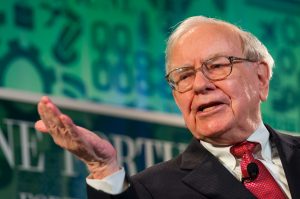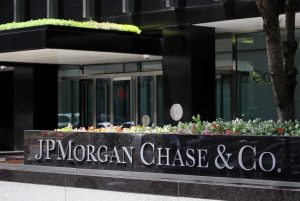In an age when geopolitical realignment is reshaping energy markets, few figures embody the new breed of trader as vividly as Christopher Eppinger. Born in 1994 near Hamburg to parents who fled the collapsing Soviet Union, Eppinger’s ascent from modest beginnings to a 31-year-old multimillionaire illustrates both the reach and the contradictions of modern commodity trading. Over the past three years, he has turned global disorder into opportunity, earning an estimated $250 million in personal profit by exploiting the market vacuum left when Western oil majors abandoned Russia. His name has since become shorthand in trading circles for a generation of operators who thrive in the gray zones of global commerce.
Eppinger’s childhood was unremarkable in material terms but rich in cultural dissonance. His parents, immigrants from Eastern Europe trying to adapt to a newly capitalist Germany, viewed stability as success. Their son, however, saw the world differently. Obsessed with the glamour of American wealth, he devoured business magazines and reruns of Dallas, fascinated by the swagger of fictional oil barons who treated markets like chessboards. By his late teens, he had already set his sights on the energy business, enrolling at the European Business School in Paris to study international business administration. The degree gave him fluency in finance and trade mechanics, but it was his early fieldwork that would shape his worldview. After graduating, he took a series of assignments in Kazakhstan, a crossroads of oil, politics, and patronage. Stints at Kaztransoil and KazMunayGas introduced him to the gritty details of pipeline management, tender negotiations, and the realities of post-Soviet bureaucracy. In the oil towns of Atyrau and Tengiz, he learned how to move barrels through relationships – that deals are done over tea, not PowerPoint.
By the time he returned to Germany, Eppinger had assembled a formidable Rolodex of traders, shippers, and middlemen from Almaty to Novorossiysk. In 2020, at age 26, he co-founded CE Commodities GmbH in Hamburg with Berlin financier Torsten Fette, launching the firm with €25,000 in registered capital and a single objective: to trade energy wherever margins existed. The company began quietly, sourcing small batches of Central Asian crude for European refiners and arbitraging minor price dislocations. But when the pandemic upended logistics and financing, the business nearly collapsed. Many traders folded; Eppinger adapted. CE Commodities pivoted toward spot trading and invested in satellite-tracking data and blockchain shipment verification to manage cargoes more efficiently than larger rivals. The firm’s small size became an advantage—no board approvals, no committee delays. When Russia invaded Ukraine in 2022 and sanctions rewired global trade overnight, that nimbleness became its greatest asset.
While multinational giants like BP, Shell, and Total exited Russian ventures and wrote off billions, smaller independents rushed in. Eppinger relocated his operations to Dubai, joining a flood of European traders migrating from Geneva and London to the Gulf, where free-zone jurisdictions and looser financial restrictions allowed them to keep handling sanctioned cargo indirectly. Others decamped to Singapore, forming a new East-West corridor of independent energy intermediaries. In Dubai’s Jumeirah Lake Towers, Eppinger registered CE Energy DMCC, later folded into Petrichor Energy, and began structuring trades that would define the sanctions era. His model was straightforward: buy Russian-origin crude and fuel oil at steep discounts, blend it with other grades in storage tanks at Fujairah, and resell to buyers in Asia, Africa, and Latin America as “UAE-blended” product. The process technically complied with the G7’s $60-per-barrel price cap as long as documentation certified the cargo’s new origin. Enforcement was largely self-reported, and Eppinger understood precisely where the legal lines ended and the profitable gray area began.
According to the Financial Times, CE Energy handled roughly 3.3 million tonnes of crude and refined products between early 2023 and February 2025 — equivalent to about 24 million barrels — generating an estimated $2 billion in turnover. The firm benefited from steep discounts on Russian Urals crude, which often traded $20 to $30 a barrel below Brent, creating wide trading margins after freight and insurance costs. Eppinger’s team, which reportedly numbered fewer than twenty people, operated with extended credit from counterparties, enabling a relatively small firm to manage cargo volumes normally handled by much larger houses. By early 2025, he had wound down Russian-linked trading ahead of tighter U.S. Treasury guidance on so-called “secondary enablers” — having already amassed substantial personal profits from the dislocation in global energy flows.
Flush with profits from the dislocation in global oil markets, Eppinger began repositioning his business under a new brand, Petrichor Energy—a name referencing the scent of rain on dry earth. The company, which groups his trading and logistics operations, has since expanded into energy transition ventures and carbon-offset initiatives, reflecting a broader shift among commodity traders toward renewables. Public information about Petrichor’s projects remains limited, though corporate materials describe an interest in biofuels and renewable-power investments across Europe and Africa. The rebrand underscores a familiar theme in the trading world: profits from hydrocarbons funding the early stages of cleaner-energy ventures.
Even as he diversifies, Eppinger remains emblematic of a larger structural shift. When sanctions and compliance fears pushed Western houses out of Russian oil, independent operators in Dubai and Singapore filled the void. Bloomberg and Reuters have since chronicled a wave of newly incorporated trading companies in the UAE, some backed by Russian, Indian, or Chinese capital, that collectively redirected tens of millions of barrels once handled through Geneva. Eppinger’s rise was both a cause and a consequence of that migration, marking Dubai’s emergence as the world’s newest energy-trading hub. His peers in the Gulf describe him as unusually data-driven, relying on real-time vessel analytics and proprietary pricing dashboards, while maintaining a gambler’s intuition for timing and risk. That combination–discipline and audacity–made him one of the few independents to extract institutional-level profits without institutional capital.
With newfound wealth came visibility, and Eppinger has leaned into both. Now based between Dubai and Europe, he’s become a fixture on the trading circuit, appearing at energy forums from Davos to Monaco. People who’ve worked with him describe a driven, detail-oriented operator who tracks vessel movements personally and demands constant updates from brokers. His lifestyle reflects the new geography of independent trading—less Geneva boardroom, more global mobility—where success is measured as much in speed as in scale.
The scrutiny, naturally, has followed. Transparency groups such as Global Witness estimate that shadow trades routed through intermediary hubs funneled more than $100 billion to Russia’s treasury between 2022 and 2024, undermining sanctions’ intent. The European Commission’s enforcement arm opened inquiries into several Hamburg-linked trading houses, including CE Commodities, though no charges were filed. Eppinger has consistently denied any wrongdoing, pointing to the company’s published sanctions-compliance and anti-bribery codes referencing Refinitiv and Dow Jones screening systems. “Markets fill vacuums,” he told the FT. “We filled one, legally.” To critics, that legality feels like semantics; to admirers, it is precisely the kind of calculated risk that defines successful trading.
Today, Eppinger’s empire straddles both sides of the energy spectrum. CE Commodities continues to manage European logistics under new director Gheorghe Petras, while the Dubai-based Petrichor group invests in African downstream projects, including modular refineries in Nigeria and biofuel supply chains in East Africa. He is reportedly exploring tokenized-commodity finance–digital platforms allowing investors to hold fractional interests in physical cargoes–as a next-generation capital-raising mechanism. Whether that materializes into a full public vehicle remains uncertain. For now, his focus appears to be on expanding Petrichor’s trading footprint into Asia, leveraging his UAE base as an intermediary between African producers and Asian refiners.
At thirty-one, Eppinger represents both a generational and moral shift in global energy trading: less institution, more improvisation; less Geneva discretion, more Dubai visibility. His success–built on speed, nerve, and a tolerance for ambiguity–mirrors the structure of the modern commodity market itself: fragmented, data-driven, and always one step ahead of regulation. Whether he successfully adds another zero to his net worth, as is his stated ambition, depends on his next moves. But for now, Christopher Eppinger stands as a symbol that speed, ambition, and the ability to successfully navigate regulatory minutiae wins.









Be First to Comment